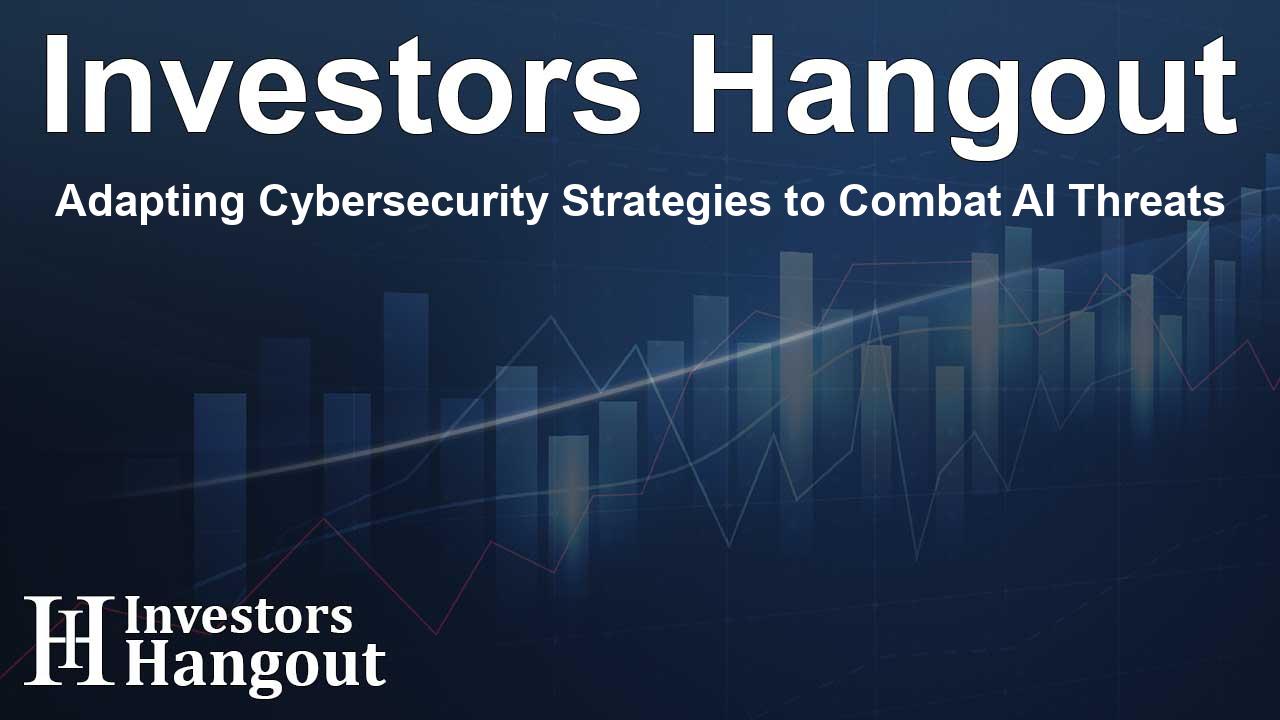Adapting Cybersecurity Strategies to Combat AI Threats

Understanding the New Cyber Threat Landscape
As artificial intelligence (AI) technologies rapidly evolve, they introduce a range of security challenges. Many organizations are finding themselves vulnerable to new threats, expanding attack surfaces, and the complexities of compliance. A recent survey has shed light on these critical issues.
The Impact of AI Adoption on Security Architecture
With over 60% of organizations harnessing AI within their IT frameworks, it's evident that this technology is becoming integral to modern business operations. However, along with this adoption, about 30% of organizations are evaluating the implementation of AI to further enhance their operations. The investigation highlights that 37% of organizations have adjusted their security strategies in response to emerging AI-driven threats.
Emerging Threats and New Attack Surfaces
The introduction of AI into everyday business practices is not without its drawbacks. As business users leverage AI tools, a new attack surface has commenced, challenging security teams to rethink their protection strategies. The survey found that 30% of participants noticed significant changes in their security posture due to this new landscape.
Compliance Challenges in AI-Driven Environments
Moreover, compliance has also become a pressing issue. Nearly 29% of organizations expressed difficulties in demonstrating data security and privacy as mandated by compliance standards. This represents a broader concern surrounding the integrity of AI systems and the safeguarding of sensitive information.
Security Teams and Their Evolving Roles
In today's world, security teams must be equipped to handle a variety of threats that are becoming increasingly sophisticated. Jeff Warren, Chief Product Officer at Netwrix, highlights that identity-driven incidents are notably on the rise. Cybercriminals are using innovative approaches to bypass established security measures like Multi-Factor Authentication (MFA) and are exploiting machine-to-machine identities, which are integral to automated processes.
The AI Lifecycle and Zero Trust Principles
Securing AI workloads, particularly those trained on proprietary data, is vital given that these data sets represent valuable intellectual property. It is crucial for security teams to have comprehensive measures covering the AI lifecycle—from data ingestion and model training to API endpoint monitoring. Additionally, adopting a Zero Trust model can significantly bolster defenses against potential threats.
The Severity of Security Incidents in Organizations
As expressed in the survey, a staggering 51% of organizations have experienced a security incident within the last year, highlighting a troubling trend. The report indicates that the percentage of firms reporting no impact from these incidents is declining sharply. This statistic dropped from 45% in a previous year to a mere 36%, signifying a waning indifference to the security landscape.
Financial Implications of Cyber Threats
The financial repercussions of these incidents are growing in complexity. Around 75% of surveyed organizations have faced monetary losses due to breaches, reflecting a notable rise from 60% the prior year. Alarmingly, the proportion of respondents estimating damages at $200,000 or more has nearly doubled, underscoring the tangible impact of cyber threats on business operations.
Consequences Beyond Immediate Damages
It's essential to recognize that the repercussions of breaches extend well beyond immediate financial losses. As stated by Warren, the nuanced repercussions often include the loss of intellectual property, delays in product development, and the erosion of brand trust. Such intangible losses can be even more damaging, particularly in industries where innovation is paramount.
About Netwrix
Driven by its commitment to cybersecurity, Netwrix actively empowers organizations to foster a safe digital environment. With its innovative solutions, Netwrix provides robust protection mechanisms for data, identities, and technological infrastructures, serving over 13,500 organizations in more than 100 countries. The company equips security professionals with the necessary tools to identify, protect, and manage sensitive information while effectively responding to and recovering from any attacks.
Frequently Asked Questions
What is the main focus of the Netwrix cybersecurity report?
The report concentrates on how organizations globally are adapting their cybersecurity strategies in response to AI-driven threats.
How many organizations are currently using AI in their infrastructure?
According to the findings, 60% of organizations are implementing AI within their IT infrastructure.
What are the primary challenges organizations face due to AI?
The main challenges include the emergence of new threats, new attack surfaces, and compliance requirements related to data security.
What is Zero Trust in the context of cybersecurity?
Zero Trust is a security model that operates under the assumption that every interaction could be potentially malicious, necessitating strict authentication measures.
How can organizations prevent breaches related to AI workloads?
Securing data throughout the AI lifecycle and maintaining stringent security principles are critical to preventing breaches.
About The Author
Contact Dylan Bailey privately here. Or send an email with ATTN: Dylan Bailey as the subject to contact@investorshangout.com.
About Investors Hangout
Investors Hangout is a leading online stock forum for financial discussion and learning, offering a wide range of free tools and resources. It draws in traders of all levels, who exchange market knowledge, investigate trading tactics, and keep an eye on industry developments in real time. Featuring financial articles, stock message boards, quotes, charts, company profiles, and live news updates. Through cooperative learning and a wealth of informational resources, it helps users from novices creating their first portfolios to experts honing their techniques. Join Investors Hangout today: https://investorshangout.com/
The content of this article is based on factual, publicly available information and does not represent legal, financial, or investment advice. Investors Hangout does not offer financial advice, and the author is not a licensed financial advisor. Consult a qualified advisor before making any financial or investment decisions based on this article. This article should not be considered advice to purchase, sell, or hold any securities or other investments. If any of the material provided here is inaccurate, please contact us for corrections.
